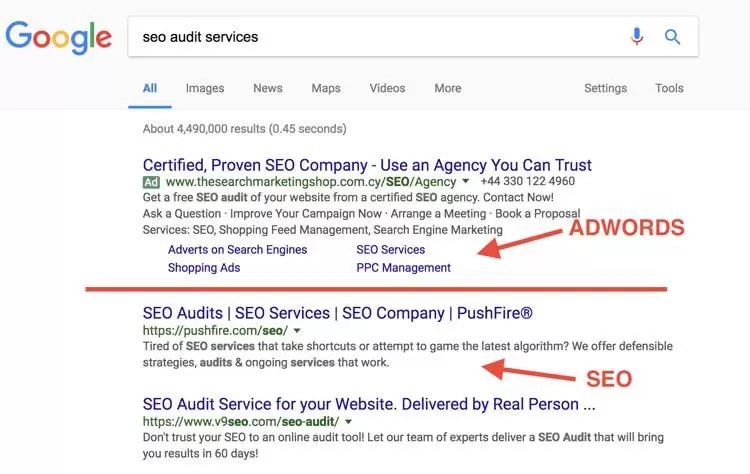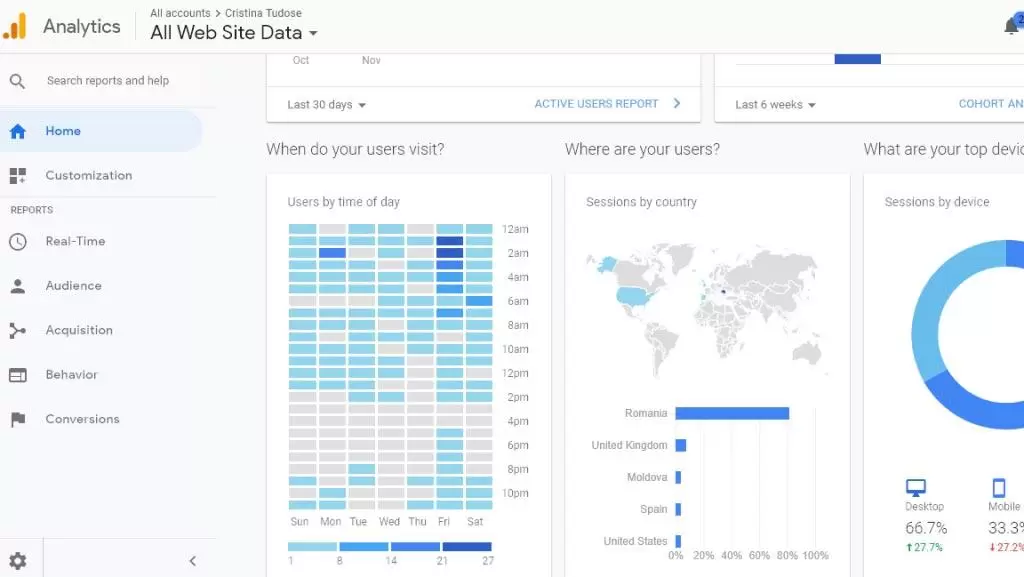In the age of online promotion and e-commerce, it becomes obvious that we don’t exist without digital marketing, without that „something” setting us apart on an over-saturated market. We need efficient promotion and a clearly established image via the use of digital marketing in order to position our products, services or even ourselves.
From the manner in which we build an online store, to the user experience (UX) elements found on websites to the niche content served in an easily digestible form to a specific targeted audience, ending with video explainers and animations, the manner in which we choose to promote ourselves evolves on the daily and so do the industry trends.
If you’re an online marketing novice, I prepared a starting point for you here in order to make your work easier. If you’ve already read my introductory piece, I invite you to join me as we tackle the most important digital marketing terms that anyone should know to ensure the success of his business, product, service or personal brand.
Let’s begin...
#1 Google Adwords (currently Google Ads)

Google Adwords, recently re-named into Google Ads is one of the biggest paid advertising instruments in the world. It helps you jumpstart keyword campaigns (pay-per-click) and boost your rankings in the paid Google search results. Google Ads ads (excuse the repetition) can be found in the upper half of the page or on the right side, separated from organic search results.
Google Ads campaigns must fit into a certain budget and the results obtained are largely dependant on that budget, as well as the manner in which the ads are structured and the specialists’ overall targeting skills.
#2 Keyword Planner
It is an instrument provided to everyone with a Google Ads account, useful for those who run paid campaigns, but also for those who deal with the organic side of the internet and need another advantage. Moreover, I would like to add that this little tool can be a God-sent for any blogger or content creator.
Remember that if you want to register for a Google Ads account, you’ll have to pay a minimum amount of 40 LEI (8 EUR) in order to access all offered benefits, including Keyword Planner.
KP helps you track the position and relevance of certain keywords for different users, whether you select the Romanian language or the English language, depending on who you’re targeting. These searches offer you a great insight that can help you structure your future ads or articles better, see the interests of your core audience and how to reach it. Here’s a practical example:

Keyword Planner is a valuable digital marketing tool for anyone, but especially for organic content creators and those who run paid/sponsored ads.
#3 Affiliate marketing
Affiliate marketing is basically a partnership between you and a website, individual or company. You earn a commission by promoting the products of a company, basically you receive a part of the profit for every successful sale.
#4 Analytics
It is a generic term that refers to any analytical instrument used in digital marketing. The most popular ones that I’m sure you’ve heard about before are Google Analytics and Facebook Analytics.
They are useful for any site or blog owner because they analyze the data coming from your website and offer you precious insight into your audience and its behavior that you couldn’t have gained otherwise – how many users entered your website, from where, how much they stayed, their average age, the keywords they used to find your content etc.
Here is just some of the information Google Analytics can give you about your website:
#5 Conversion and conversion rate
What does the term „conversion” mean in online marketing, exactly? I’ll try to explain as simple as possible, without any added headaches.
- You have a sign-up form on your website and a user left his e-mail address
- You have a comment section and your users interacted with your content at your encouragement/request
- You have a share button that generates a certain number of shares monthly
- You have a booking form on your website and people leave their personal data to contact you or be contacted in return
All of the above are examples of conversions.

Through the term „conversion” we understand any action done on your website by a user at your encouragement. It can be downloading a guide, signing up for a newsletter or even the old-fashioned comment.
The conversion rate, on the other hand, is a percentage, an indicator of your business’ success, especially in the case of online stores. The conversion rate also has a formula:
CR = the number of successful conversions (how many users did the action you wanted on the website) divided by the total number of users.
If, for example, you’ve launched an online guide, it’s very helpful for you to find out how many users actually downloaded it from the total number of visitors because you’ll have a tangible statistic of your success rate.
In digital marketing, it’s all about conversions, so the endgoal for anyone should be to achieve a good conversion rate.
#6 Domain name
It is your unique brand name in the online world. The domain name is bought and becomes the owner’s. For example, out of the entire URL of this website - https://cristinatudose.ro, the domain name is “cristinatudose”.
#7 URL
It is the unique address of a website, blog or page, it commonly contains a name and an extension (.ro, .com). To continue the example above, the URL of this blog is: "https://cristinatudose.ro".
#8 PPC
PPC marketing is, in short, bidding a certain sum of money on one or more keywords in order to increase your position in the paid Google or Bing searches. The more money you bid compared to your competitors, the higher your website will rank in searches and, therefore, it will be found faster by clients. Moreover, in the case of PPC, the ad is only paid if the user clicks on it.
#9 SEO

Search Engine Optimization or SEO refers to an ensemble of tactics and tools used in digital marketing to improve the ranking of a website in the organic (or free) search results on a specific search engine (e.g. Google or Bing searches that we all do on the daily using various keywords).
Popular SEO techniques are optimizing links and keywords, improving website content, metatitles and metadescriptions to increase the visibility of the website in question.
#10 Wordpress

Wordpress is one of the most popular open source blogging platforms. Wordpress allows you to create presentation websites, blogs or even online stores usind predefined or paid themes, to which you can add various functionalities through the use of the so-called plug-ins (like and dislike buttons for your comment section, share buttons, cookie banner, GDPR form etc.)
The site you’re reading now, for example, is done on Wordpress.
#11 A/B Testing
It is a tactic frequently used in digital marketing and it refers to the distribution of two types of similar marketing content – usually with only one different detail or added element .
The goal is to share them both to a targeted audience in order to understand which elements had a higher success rate and measure the individual results of each type of content.
For example, you can send out two similar e-mails with only a different paragraph to your customers to see what effect that change had on your conversion rate, you can add or take out a certain call-to-action from a text or come up with two title variations for the same article.
#12 Bounce Rate
It is a digital marketing term that refers to the percentage of visitors who leave a website without visiting other pages aside from the one they landed on.
If you’re a blogger, a practical example here would be: from the total number of visitors, the percentage who read article X that you wrote then exited immediately, without being curious enough to check out articles Y and Z also.
#13 Buyer Persona

Buyer persona is yet another digital marketing instrument used by specialists, as well as anyone seeking to sell goods or services. It refers to creating a so-called ideal consumer profile that reflects the audience we want to target.
This profile should contain relevant and precise information that can help me sale my product and it should answer questions such as:
- Who am I speaking to?
- What is the education level of my ideal consumer?
- What is his age?
- What is his income?
- What are his interests?
- How does he spend his free time?
An example of buyer persona for the product „online marketing courses” would be:
Andrei Popescu, 35, university studies, medium income, interested in topics such as entrepreneurship and online promotion, spends his free time reading business magazines and niche websites such as startupnation.ro
Conclusions
These are just a few essential digital marketing terms for entrepreneurs, business owners, bloggers or just any regular person seeking to learn more about online promotion.
Because there is so much more to tackle on this topic, we will add more terms to the present article in the following weeks. I hope the above info helped you get accustomed to this beautiful field, target your paid or organic content better and stand out from your competitors.
If you have any other questions, never hesitate to ask. Thanks for stopping by and come again!
Like what you read? Pass it on!




